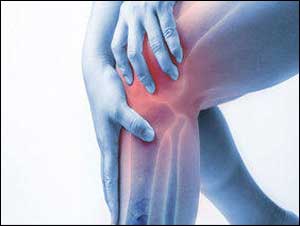- Home
- Editorial
- News
- Practice Guidelines
- Anesthesiology Guidelines
- Cancer Guidelines
- Cardiac Sciences Guidelines
- Critical Care Guidelines
- Dentistry Guidelines
- Dermatology Guidelines
- Diabetes and Endo Guidelines
- Diagnostics Guidelines
- ENT Guidelines
- Featured Practice Guidelines
- Gastroenterology Guidelines
- Geriatrics Guidelines
- Medicine Guidelines
- Nephrology Guidelines
- Neurosciences Guidelines
- Obs and Gynae Guidelines
- Ophthalmology Guidelines
- Orthopaedics Guidelines
- Paediatrics Guidelines
- Psychiatry Guidelines
- Pulmonology Guidelines
- Radiology Guidelines
- Surgery Guidelines
- Urology Guidelines
Two weeks targeted antibiotic therapy superior to four weeks of therapy in Septic Arthritis

Two weeks targeted antibiotic therapy superior to four weeks of therapy in Septic Arthritis, revealed a study published in the journal Annals of Rheumatic Disease.
Septic arthritis is also known as infectious arthritis and is usually caused by bacteria. It can also be caused by a virus or fungus. The condition is an inflammation of a joint that's caused by infection. Typically, septic arthritis affects one large joint in the body, such as the knee or hip. The optimal duration of post-surgical antibiotic therapy for adult native joint bacterial arthritis remains unknown.
The authors of the study conducted a prospective, unblinded, randomized, non-inferiority study comparing either 2 or 4 weeks of antibiotic therapy after surgical drainage of native joint bacterial arthritis in adults. Excluded were implant-related infections, episodes without surgical lavage and episodes with a follow-up of fewer than 2 months. A total of 154 cases: 77 in the 4-week arm and 77 in the 2-week arm were enrolled for the study.
- Recurrence of infection was noted in three patients (2%): 1 in the 2-week arm (99% cure rate) and 2 in the 4-week arm (97% cure rate).
- There was no difference in the number of adverse events or sequelae between the study arms.
- Of the overall 154 arthritis cases, 99 concerned the hand and wrist, for which an additional subgroup analysis was performed.
- In this per-protocol subanalysis, we noted three recurrences: one in the 2-week arm (97 % cure); two in the 4-week arm (96 % cure) and witnessed sequelae in 50% in the 2-week arm versus 55% in the 4-week arm, of which five (13%) and six (13%) needed further interventions.
Based on their results the authors concluded that after initial surgical lavage for septic arthritis, 2 weeks of targeted antibiotic therapy is not inferior to 4 weeks regarding cure rate, adverse events or sequelae and leads to a significantly shorter hospital stay, at least for hand and wrist arthritis.
Gjika E et al. Two weeks versus four weeks of antibiotic therapy after surgical drainage for native joint bacterial arthritis: A prospective, randomised, non-inferiority trial. Ann Rheum Dis 2019 Aug; 78:1114. (https://doi.org/10.1136/annrheumdis-2019-215116)

Disclaimer: This site is primarily intended for healthcare professionals. Any content/information on this website does not replace the advice of medical and/or health professionals and should not be construed as medical/diagnostic advice/endorsement or prescription. Use of this site is subject to our terms of use, privacy policy, advertisement policy. © 2020 Minerva Medical Treatment Pvt Ltd